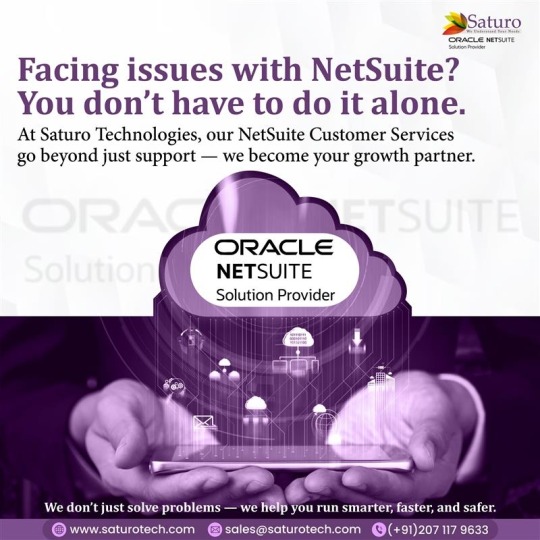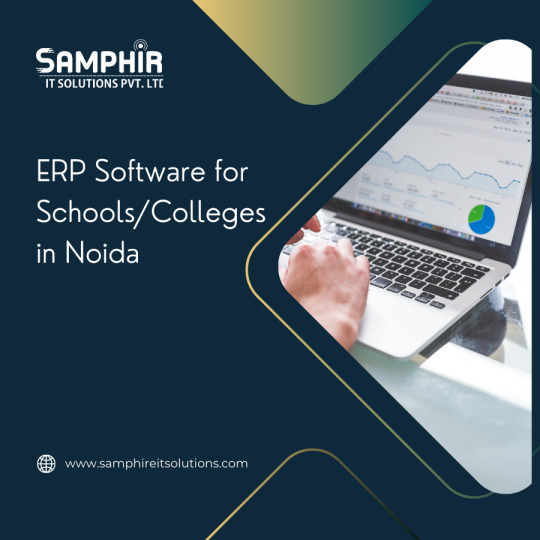#ERP application
Explore tagged Tumblr posts
Text
1 note
·
View note
Text

#suitecommerce advanced implementation india#netsuite service provider india#accounting software#netsuite india#erp application#customization#in house erp
0 notes
Text
Ultimate POS v6.3 NULLED – Best ERP & Stock Management
Ultimate POS v6.3 NULLED – Best ERP & Stock Management Key Features: Multiple Business/Shops: Set up multiple businesses in the application. No restriction on numbers of businesses. Inventory & accounting information is kept separately for each business. Add Location / Storefronts / Ware House: Create multiple locations for your business/shop Manage all of them at the same time. Stocks,…
#AI#ai content#enterprise resource planning#erp#erp application#gst#inventory manager#invoicing application#open source point of sales#php point of sales#PhpPOS#point of sale#pos#retail shop manager#simple pos
0 notes
Text

Top listed school/college ERP software in Delhi NCR provides different types of modules such as registrar, academics, CMS, LMS, examination, fees, transport, placement, grievance, feedback and inventory. This organization offers best education ERP software with different features such as scalable, secure, easy to use and Cost-Effective. For more detail about one of top ERP companies in Delhi NCR visit web address.
0 notes
Text
Understanding Enterprise Resource Planning (ERP)
Enterprise Resource Planning (ERP) is a powerful software solution that plays a pivotal role in modern business operations. It allows organizations to consolidate and manage various aspects of their business processes in an integrated system. This article will delve into the fundamental concepts of ERP, its key components, benefits, and considerations for successful implementation and ERP application.

What is ERP?
ERP, or Enterprise Resource Planning, is a software system that streamlines and automates the management of core business functions, such as finance, human resources, procurement, supply chain, production, and customer relationship management. It acts as a centralized hub for data, connecting different departments within an organization to improve communication, increase efficiency, and provide real-time insights.
Key Components of ERP
Financial Management: ERP systems typically include modules for accounting, financial planning, and budgeting. They help organizations manage their financial data, track expenses, and generate financial reports.
Human Resources: ERP solutions often have HR modules for managing payroll, recruitment, employee records, and performance evaluations. This streamlines personnel management and ensures compliance with labor regulations.
Supply Chain Management: ERP systems optimize the supply chain by providing tools for inventory management, order processing, and supplier relationship management. This leads to better inventory control and cost reduction.
Production and Manufacturing: Manufacturing ERP modules assist in planning production, managing bills of materials, and controlling shop floor operations. They enhance production efficiency and quality.
Customer Relationship Management (CRM): CRM modules help organizations manage customer data, sales, and marketing efforts. This results in improved customer service and better customer insights.
Business Intelligence and Analytics: Many ERP systems include reporting and analytics tools to provide real-time insights into business performance, enabling data-driven decision-making.
Benefits of ERP
Streamlined Processes: ERP systems centralize data and standardize processes, reducing redundancy and enhancing efficiency.
Improved Decision-Making: Access to real-time data and analytics empowers organizations to make informed decisions quickly.
Enhanced Productivity: Automation of routine tasks frees up employees to focus on value-added activities.
Better Customer Service: CRM modules help organizations provide superior customer service, leading to increased customer satisfaction.
Cost Reduction: ERP can lead to cost savings by optimizing inventory, reducing manual errors, and improving resource allocation.
Compliance and Risk Management: ERP systems aid in regulatory compliance and mitigate risks associated with data security and business processes.
Considerations for ERP Implementation
Needs Assessment: Identify your organization's specific needs and goals before selecting an ERP system.
Vendor Selection: Choose a reputable ERP vendor with experience in your industry and a track record of successful implementations.
Data Migration: Plan for the migration of existing data into the ERP system, ensuring data accuracy and integrity.
User Training: Train your employees to use the ERP system effectively to maximize its benefits.
Change Management: Prepare your organization for the changes that come with ERP implementation, as it may impact existing workflows.
Scalability: Select an ERP system that can grow with your organization's needs over time.
Conclusion
Enterprise Resource Planning is a vital tool for modern businesses seeking to optimize their operations, reduce costs, and stay competitive. A well-implemented ERP system can be a game-changer, providing a foundation for growth, efficiency, and data-driven decision-making. Careful planning and consideration of your organization's unique needs are essential for a successful ERP implementation.
1 note
·
View note
Text
#cloud erp#crm consulting#crm services#crm software#dynamics 365 crm#erp consulting services#erp application#customer service crm#business#erp
0 notes
Text
The Role of ERP Systems in Streamlining Accounts Payable Processes
In today's constantly changing business environment, organizations are always looking for ways to increase productivity and lower operating expenses. The administration of accounts payable (AP) is one area that is crucial to attaining these objectives. Many times, businesses are drowning in a sea of bills, manual data entry, and convoluted approval workflows. Here, ERP (Enterprise Resource Planning) systems—particularly ERP for accounts payable—come into play as crucial instruments for streamlining AP procedures.
ERP (Enterprise Resource Planning) solutions are comprehensive platforms that combine several business processes and services into a single, coherent system. ERP solutions are critical to the optimization of the entire accounts payable process when used properly.
Automated Invoice Processing: The automation of invoice processing is one of the main roles of ERP in accounts payable. Traditional manual data input of invoices takes a lot of time and is prone to mistakes. ERP solutions speed up this procedure by electronically recording invoice data and automatically comparing it to purchase orders and receipts. Automation speeds up invoice approval and lowers the possibility of human error.
Improved Workflow and Approval Processes: ERP systems have advanced workflow features that let businesses create and enforce approval levels. For evaluation and approval, invoices are electronically forwarded to the relevant parties. This minimizes the possibility of late payments and the accompanying fines by ensuring that invoices are processed promptly.
Enhanced Visibility and Reporting: Accounts payable ERP offers real-time insight into the status of invoices, unpaid bills, and cash flow. Organizations can make wise financial decisions and improve cash management thanks to this degree of transparency. Strong reporting capabilities also allow firms to evaluate AP data to gain insights into customer spending habits and vendor performance.
Supplier Relationship Management (SRM): By offering a common repository for vendor data, ERP systems can help supplier relationship management. This gives companies the ability to negotiate better terms, monitor vendor performance, and strengthen supplier ties. Improved supplier collaboration and cost reductions are two benefits of effective SRM.
Compliance and Security: ERP for accounts payable helps companies in maintaining tax and accounting standards compliance in an era of increased regulatory scrutiny. Additionally, these systems include strong security safeguards to protect delicate financial data, lowering the likelihood of fraud and data breaches.
Conclusion:
Businesses aiming to optimize operations, cut costs, and improve financial management may consider integrating ERP systems into accounts payable procedures. ERP in accounts payable streamlines the processing of invoices and also optimizes workflow, visibility, and supplier relationships. It enables firms to easily maintain compliance and make data-driven decisions.
0 notes
Text
0 notes
Text
#hire shopify experts#shopify custom sections#shopify theme customization#shopify development services#shopify development company#Software development services#Software Development company#Hire software developers#Open Source Implementation#Ecommerce Factory#ERP Development#Refining Existing Applications#Conversion Rate Optimization#Don’t Just Update#Upgrade!#Startup Solutions#ADA Compliant Website#Online Marketplace Development#Theme Development#Platform Migration
2 notes
·
View notes
Text
4 notes
·
View notes
Text
i received a good grade in therapy consultation and now have therapy scheduled lads
#gonna try act therapy instead of erp#which I think will be more applicable to my brand of ocd anyway
2 notes
·
View notes
Text

#netsuite india#accounting software#suitecommerce advanced implementation india#erp application#netsuite service provider india#customization
0 notes
Text
Odoo is a powerful, open-source business management software suite that offers various applications for various business needs, including customer relationship management (CRM), e-commerce, accounting, inventory management, and more. As a business owner or decision-maker, understanding the Odoo developer cost per hour is crucial for budgeting and ensuring the success of your projects.
Learn More: - https://www.inwizards.com/blog/how-much-does-odoo-developer-cost-per-hour/
Get a free quote on your Odoo development project today!
#odoo development services#odoo development company#odoo erp solutions#odoo application development#odoo developers#odoo services#Odoo developer cost per hour#Odoo developer cost#inwizards software technology#odoo#odooerp#Business Management Software
2 notes
·
View notes
Text

Get benefit from one of top 10 digital marketing agencies in Noida offers SEO On-Page/Off-Page, content marketing, PPC, email marketing, blogging, forum and other digital marketing services. Better SEO helps a company website to grow ranking on search result pages. For beneficial digital marketing services visit our official web address.
#digital marketing agency in noida#erp application#erp software companies#seo search engine optimization
0 notes
Text
ERP Trends 2024: Unveiling the Future of ERP Systems.
Visit Website, Glasier Inc.
Our Blogs
Other Services,
erp software development company
hospital management system
Hire Angular Developers
Hire SaaS developer
Hire Flutter Developers
Hire ReactJs Developers
#Custom ERP software development#ERP development services#ERP development#ERP software development services#ERP development Company#app development cost#app development#website#ios application development services#offshore developers#hire dedicated reactjs developers
1 note
·
View note